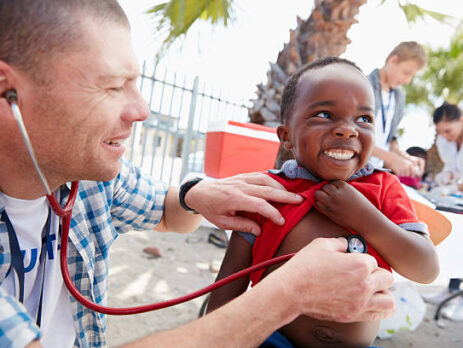Medical volunteering plays a vital role in addressing healthcare disparities, providing crucial support to underserved communities, and promoting global health equity. It offers healthcare professionals and students a unique opportunity to make a tangible difference in the lives of individuals and communities around the world.
1. Access to Healthcare:
Medical volunteering bridges the gap in access to healthcare services, particularly in resource-limited areas. Volunteers contribute their skills and expertise to provide much-needed medical care to individuals who might otherwise go without proper treatment. By offering primary healthcare services, conducting health screenings, and providing education, medical volunteers play a critical role in improving the health outcomes of vulnerable populations.
2. Capacity Building and Training:
Medical volunteering also focuses on capacity building and training initiatives. Volunteers not only deliver immediate medical care but also work alongside local healthcare providers to share knowledge and skills. This collaboration enhances the capacity of local healthcare systems, empowering local professionals with the tools and expertise to continue providing quality care even after the volunteers have departed.
3. Cross-cultural Exchange and Understanding:
Medical volunteering promotes cross-cultural exchange and understanding. Volunteers gain insight into the unique healthcare challenges faced by different communities and cultures. This experience cultivates empathy, cultural sensitivity, and a broader perspective on healthcare disparities. Likewise, local communities benefit from exposure to different healthcare practices and global perspectives, fostering mutual respect and understanding.
4. Emergency Response and Disaster Relief:
Medical volunteers play a crucial role in emergency response and disaster relief efforts. In the aftermath of natural disasters or during public health emergencies, their rapid deployment and expertise help save lives and alleviate suffering. Volunteers provide medical care, coordinate relief efforts, and contribute to the rebuilding of healthcare infrastructure in affected areas.
5. Personal and Professional Growth:
Medical volunteering offers personal and professional growth opportunities. Volunteers gain hands-on experience in diverse healthcare settings, honing their clinical skills and adapting to challenging environments. Additionally, they develop valuable attributes such as adaptability, resilience, and teamwork. These experiences not only broaden their perspective but also contribute to their personal and professional development.
Medical volunteering serves as a catalyst for positive change, addressing healthcare inequalities and fostering global health impact. By delivering healthcare services, building capacity, promoting cultural exchange, and responding to emergencies, medical volunteers contribute to the well-being of individuals and communities worldwide. Their dedication and selflessness inspire hope and remind us of the power of collective action in creating a healthier and more equitable world. Medical volunteering is an invaluable platform that allows healthcare professionals and students to utilize their skills and compassion to bring about meaningful and sustainable improvements in global health.

